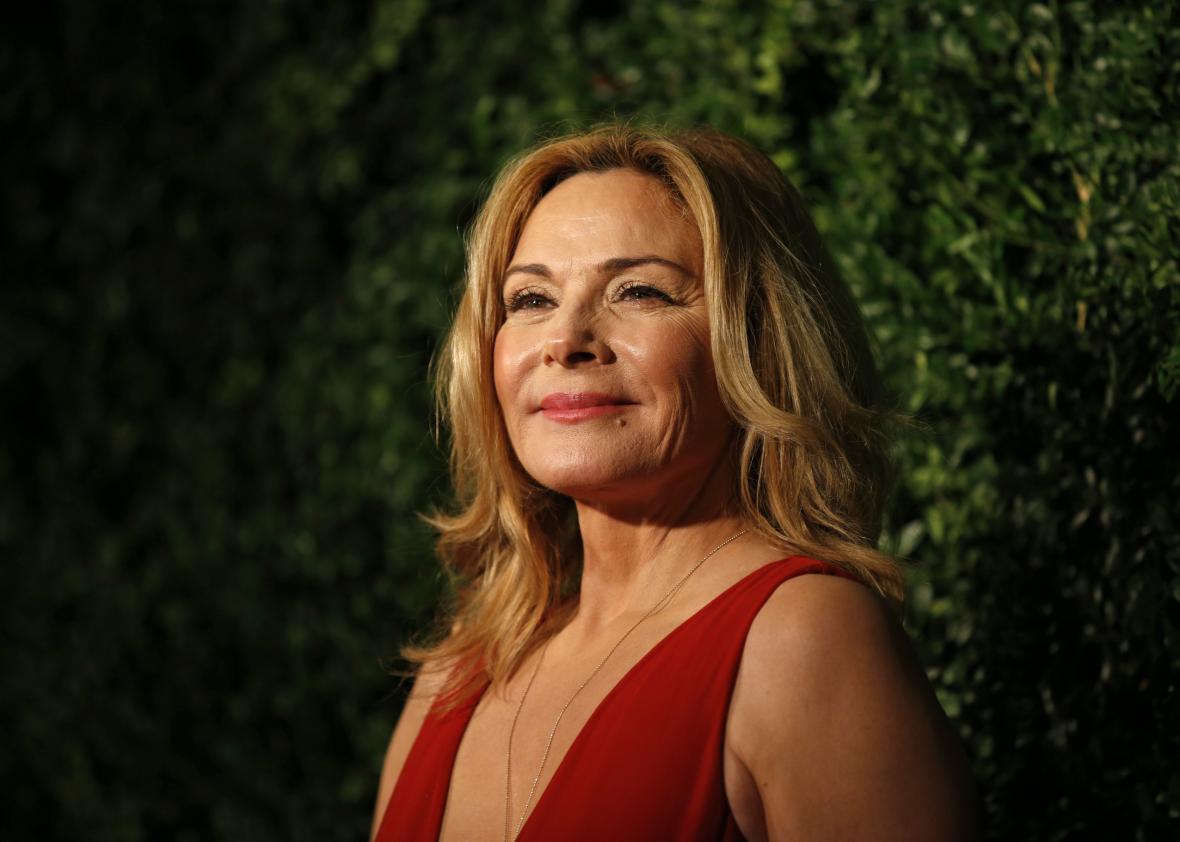Actress Kim Cattrall found herself at the center of a social media drubbing after she did an interview with BBC Radio 4’s “Women’s Hour” in which she argued that you don’t need to be a mother to be a mother. She said:
I am a parent. I have young actors and actresses that I mentor. I have nieces and nephews that I am very close to. So I think the thing that I find questionable about being childless or child-free [is]: Are you really? There is a way to become a mother in this day and age that doesn’t include your name on the child’s birth certificate. You can express that maternal side of you very, very clearly, very strongly. I guess the word is—it feels very satisfying.
While many media outlets reported this straightforwardly or even with praise, many commenters took umbrage at the Sex and the City star daring to claim the mantle of “mother”: There were lots of mentions of child bodily functions and the hell of dealing with them, lamentations about how real parents sacrifice, and just generalized sneering. “Not to take away from the incredibly challenging roles of being a mentor, or the pressure of an always-loved aunt,” read one typical comment at the Cut. “But if you can give them back to someone else at the end of the day … then you aren’t really getting the full parenting experience, warts and all.”
Asking women who don’t have children about motherhood is usually a trick question. There was no way for Cattrall to win this. If she said she has no desire to nurture children, then she’d face accusations of being unfeminine and lacking a maternal instinct. If she tries to highlight her nurturing side, she gets lambasted for not appreciating the sacrifices that parents make.
Self-congratulatory paeans to motherhood reinforce the notion that there’s something fundamentally lacking in you if you’re not interested in making that particular sacrifice. The more that motherhood is held out as a uniquely ennobling venture that no other work could possibly equal in gravity, the more that women who opt out will be treated as if they’re failing as women. If you don’t like women who seem at all defensive about their childless status, stop asking them to defend it.
This contest over who has sacrificed the most also obscures one of the more interesting points that Cattrall made about the many ways adults can play a role in shaping a child’s life. Parents are often encouraged to believe that every little choice can affect their child in dramatic ways, which creates a lot of unnecessary anxiety. In reality, kids are sponges who absorb all sorts of lessons and ideas from everyone around them—including peers and adults who aren’t relatives. Like it or not, aunties, godmothers, and mentors of all stripes can, in fact, have a huge impact on how a kid sees herself and the world. Cattrall was right about that, regardless of the semantic quibbles over the definition of the word mother.
